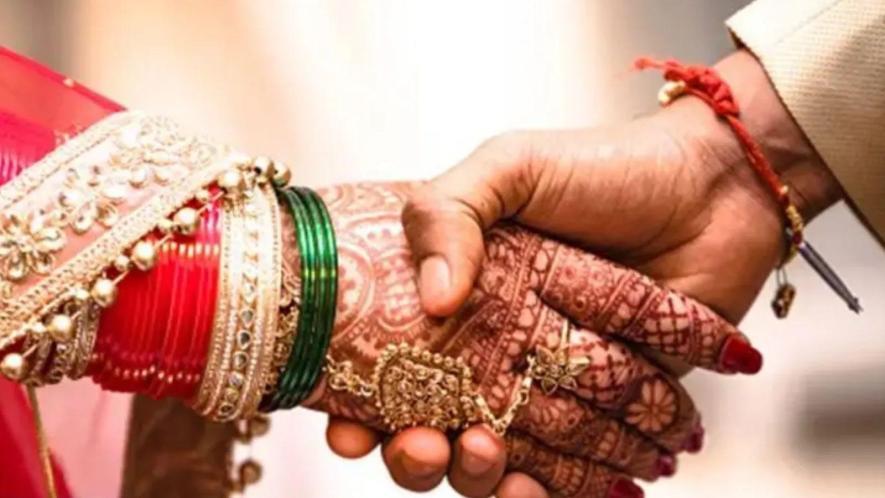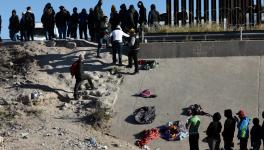Punjab: Jawaharke Khap Resolution Undermines Women’s Autonomy

The panchayat of Jawaharke village in Mansa district, Punjab, has passed a controversial resolution prohibiting villagers from marrying outsiders (migrants) or from marrying within their own village. Anyone who defies this rule faces expulsion from the village. This decision, made public on November 30, aims to curb what the panchayat sees as a growing trend of unions with migrants and intra-village marriages. As per Observer Post, some villagers have supported the move, arguing that outsiders are using marriages as a means to gain village residency, while others have voiced concerns about marriages within the village. “This trend of marrying outsiders and within the village is not appreciated by the villagers,” one local stated.
Alongside these marriage restrictions, the panchayat has also taken a firm stance against drug-related activities, announcing that no villager will act as a witness or arrange bail for those accused of drug offenses. The report by Observer Post also provided the stance of Sukhchain Singh, the husband of village sarpanch Ranvir Kaur, who defended the decision claiming that there has been a rise in the number of migrants, particularly around a nearby market. He explained, “The girl is considered the daughter of the village,” and asserted that the resolution had significant local support, although he believed it had been misrepresented by some reports.
The village, with a population of around 3,500 voters, now houses about 300 migrants. The move is part of broader tensions in Punjab surrounding migrant issues, which include opposition to migrant candidates in local panchayat elections and other instances where villages have sought to restrict migrant presence. In similar moves earlier this year, other villages in Punjab, including Kaudi and Jandpur, imposed curfews on migrants after 9 pm, leading to legal interventions, such as the reprimand from the Punjab and Haryana High Court over anti-migrant hoardings. These actions reflect the growing sentiment in certain areas of Punjab, and in Haryana, where khap panchayats have pushed for changes to the Hindu Marriage Act, 1955, to outlaw intra-gotra and intra-village marriages.
This move comes amid broader tensions surrounding migrant issues in Punjab, where local panchayat elections have witnessed opposition to migrant candidates, and other villages, such as Kaudi and Jandpur, have imposed curfews on migrants after 9 pm. The actions of the Jawaharke panchayat reflect a growing hostility towards migrants, which has been evident in other parts of Punjab and Haryana. This hostility mirrors the actions of khap panchayats, which have pushed for changes to the Hindu Marriage Act, 1955, to prohibit intra-gotra and intra-village marriages. The khap panchayats’ long-standing influence in rural areas has centred on restricting personal freedoms in the name of preserving cultural and social order, often with a particular focus on controlling women’s marital choices.
Khap panchayats, traditional village councils, have long been involved in regulating social conduct, particularly in rural North India. Their decisions often focus on issues of marriage, caste, and social behaviour, with particular emphasis on preserving what they consider traditional norms. These councils, typically dominated by older men from influential families, have historically sought to control who can marry whom, often enforcing prohibitions on intra-gotra (clan) marriages and inter-caste unions. Such decisions reflect a broader, patriarchal desire to maintain control over women’s lives, particularly their marital choices, and to ensure the preservation of caste and social structures.
Undermining women’s autonomy: The gendered impact of the panchayat’s decision
The resolution passed by the Jawaharke panchayat, alongside similar actions by khap panchayats in North India, represents a dangerous erosion of women’s autonomy, particularly in rural settings. By prohibiting unions with outsiders or within the village, the panchayat directly interferes with women’s ability to make independent decisions about their marriages and futures. These decisions reflect a deeper, patriarchal desire to control women’s sexual and reproductive choices, reducing them to instruments of family and community honour rather than autonomous individuals with rights to self-determination.
The assertion that “the girl is considered the daughter of the village” underscores a paternalistic and objectifying view of women, treating them as property to be controlled and protected from external influences. This reflects the long-standing practices of khap panchayats, which have historically imposed strict rules on marriage to ensure women remain within the confines of what is deemed acceptable by communal standards. The fear that allowing women to marry outsiders or even within the village would lead to the “loss of control” over their roles in society reveals the deeply entrenched patriarchal structures that limit women’s freedom. Such actions reinforce a system where women’s choices are secondary to community and familial interests, treating them as subjects rather than agents in their own lives.
The resolution’s impact is not isolated; it reflects a broader pattern in which women’s rights to choose their life partners are subordinated to communal and patriarchal dictates. Similar to khap panchayats’ efforts to control marriage through caste and lineage restrictions, the Jawaharke panchayat’s decision shows how local governance can perpetuate a regressive social order. By framing these actions as a defence of “community values,” the panchayat disregards the basic human rights of women to make choices about their lives. In effect, these measures not only restrict women’s autonomy but also reinforce a system where women’s roles are dictated by outdated norms, stifling their personal freedom in the name of tradition and cultural preservation.
This approach is not only deeply oppressive but also indicative of a broader societal problem—one where women’s autonomy is consistently undermined under the guise of protecting social stability. Whether through khap panchayats or local village councils like Jawaharke’s, the control over women’s marital choices is a clear tactic to maintain patriarchal control, limiting their freedoms and opportunities for self-expression. The resulting societal harm is not just the suppression of individual rights, but the entrenchment of gender inequality, where women are treated as subordinate to the collective interests of the community and its outdated traditions.
Get the latest reports & analysis with people's perspective on Protests, movements & deep analytical videos, discussions of the current affairs in your Telegram app. Subscribe to NewsClick's Telegram channel & get Real-Time updates on stories, as they get published on our website.
























